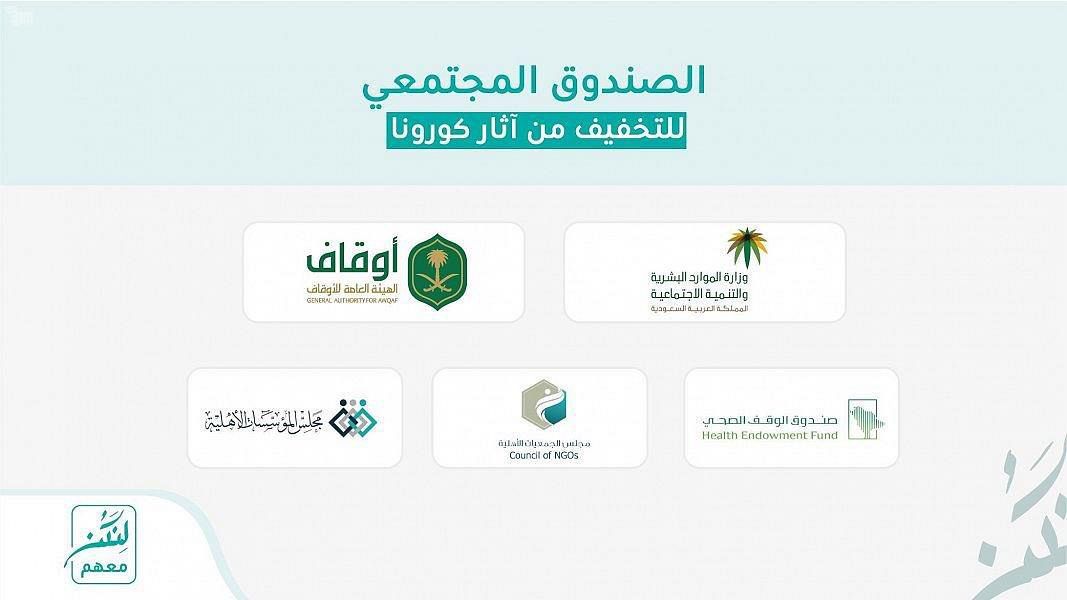
RIYADH: The coronavirus disease (COVID-19) pandemic has sent policymakers scrambling to mitigate its impact, especially on the most vulnerable segments of society such as migrants and the youth.
As a lead co-chair of the Migration and Young Societies Task Force of Think20 (T20 — the independent think tank that offers critical analysis for the G20), Princess Maha bint Mishari bin Abdul Aziz Al-Saud said they recognize these segments face a great challenge.
“It is my role to work alongside some of the world’s most renowned international experts on migration who bring to us a wealth of research to help us formulate policy based on evidence,” Princess Maha told Arab News.
“Saudi Arabia continues to lead with heart, vision and grace during these unprecedented times using a virtual platform to bring together dedicated professionals and trailblazing members of our community engaging all G20 leaders,” she said.
Princess Maha’s job as co-chair is to head panel discussions and present recommendations to the 11 T20 Task Forces.
“For example, we have identified that it is possible to mitigate short and long-term consequences of the pandemic on migrant and young communities. Italy and Sweden illustrated this by considering new residency and work permit initiatives for immigrants.”
Our researchers have provided evidence-supported research on the social, political, and economic impacts of migrants.
Princess Maha Al-Saud
Princess Maha said that their recommendations for G20 look at “fiscal sustainability in the face of demographic change” where they suggest raising productivity through human capital investment; financial inclusion for the internally displaced using displacement data to support financial inclusion policy; and how to solve global burden-sharing problems through a new suggested G20 protocol on forced migration.
Princess Maha said that the lack of attention on the more vulnerable populations was the reason why the T20 group called for multi-stakeholder approaches to find solutions to the current crisis and to focus on keeping the education of these groups at the top of the agenda.
“We believe that it is necessary to find solutions to mitigate the effects of the dropout from education and the lack of basic services such as nutritional and mental health support resulting from school closures.HIGHLIGHTS
• The T20 task force is working on several issues such as fiscal sustainability in the face of demographic change, financial inclusion of the internally displaced people.
• The think tank also calls for comprehensive virtual consultative services for refugees.
• It urges the integration of migrants and opening education channels for the migrant youth population.
“Stakeholders from different sectors realize that education is not only about providing opportunities for professional growth and increasing family incomes, but also has more important societal consequences where education can contribute to lifting societies out of poverty. Girls’ and women’s access to education is directly related to a decrease in both child mortality and child labor. Despite the documented benefits of education, financing education for vulnerable populations does not match demand,” she said.
Princess Maha explained how much they had accomplished since the beginning of T20.
“To have reached where we are now is in itself an accomplishment at a time when the world is challenged by the impact of the global pandemic.”
“In January this year, we were fortunate enough to have met at the T20 Inception Conference in Riyadh as a task force — as a think tank, but most evidently as a community of committed professionals that share the same vision: To help shape the world as a better place,” she said.
Princess Maha said that they have explored macro and microeconomic policies that address the problem of high youth unemployment and help to provide skills and opportunities for young people. They have also explored how to create innovative policies and programs that encourage intergenerational participation.
“It is well known that economic and demographic factors and the outbreak of regional conflicts have driven a large proportion of the world’s population to voluntary or forced migration, and that most of these migrations are from developing countries to the more advanced G20 countries, where migrants and refugees often face problems in social and economic integration.”
“In addition to this we discussed political options that might enable these migrants to achieve better social and economic integration, including providing access to basic services and education for migrant and refugee children,” she said
“Our researchers have provided evidence-supported research on the social, political, and economic impacts of migrants. Moreover, my team has sought a better understanding of the migration mechanisms and sought to benefit from success stories,” she said.
Princess Maha talked about the 500 experts from 65 research agencies who gathered for the T20 Inception Conference in January, and who have been seeking to develop solutions for the themes of the G20 Summit.
“We have discussed a set of fundamental issues that include climate, energy, migration, youth, innovation, technology, multilateralism, economic development, finance, food security and access to water.”
Princess Maha said that the Kingdom is ready to host the G20 meeting in November.
“This was evident in the three-day T20 conference in June organized by two major Saudi establishments, King Abdullah Petroleum Studies & Research Center (KAPSARC) and King Faisal Center for Research and Islamic Studies (KFCRIS).”
“Preparations for upcoming meetings are going well and we are looking forward to very informative sessions,” she said.












